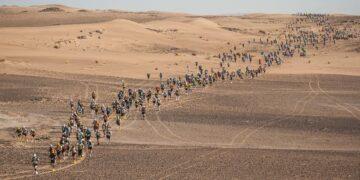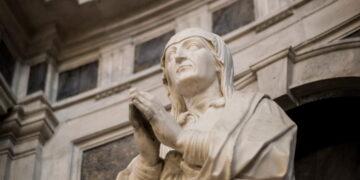Contents
Questo articolo è disponibile anche in:
O you who have believed, decreed upon you is fasting as it was decreed upon those before you that you may become righteous – [Fasting for] a limited number of days.
(Koran: Sura II, verses 183-4)
Ramadan is the holiest month for Muslims. It represents a moment of intense communion with Allah, of prayers, and of sacrifice to be made through fasting, the fourth of the five obligations dictated by Islam.
It is a very hard test of will and love towards God, during which the whole Muslim community breaks daily routines and connects with spiritual virtue. During Ramadan, physiological needs must be disciplined: mastery of one’s body is the path that leads to a greater inner good.

While waiting for the start of Ramadan in 2024, which will be around 10 or 11 March, this article will offer a quick look at the five pillars of Islam, of which fasting (sawm or siyām in Arabic) is part, and a description of the obligations and of the most important religious holidays linked to the sacred month.
The 5 pillars of Islam
God asks men to recognize his sovereignty through active submission (not a passive and unconscious one). He demands obedience, and this obedience materializes in the ‘ibadat or acts of worship. These are probably better known as “the pillars of Islam” (arkān al-Islām). They are disciplinary acts, concrete actions, words, and gestures, necessary for the purification of souls and to get closer to God. Furthermore, they are wājib, that is, obligatory.
The prescriptions on the pillars of Islam are contained in the Koran, the sacred book of Muslims, but are more “in-depth” in the hadith, the corpus on Prophet Muhammad’s sayings and accounts of daily practices collected in the Sunnah. Each Islamic legal school also contemplates very precise rules on the duties of Muslims and the punishments for transgressors.

The arkān al-Islām are: the profession of faith, the daily ritual prayers, the ritual almsgiving, the fasting in the month of Ramadan, and the pilgrimage to Mecca. Let’s look at them in order.
- Shahāda. It is a profession of faith to God and to his messenger Muhammad, and contains the two most important theological principles of Islam: “there is no god but God” (la Ilah illa Allah) and “Muhammad is God’s messenger” (wa Muhammad rasul Allah). Therefore, Islam contemplates a double testimony of faith that Muslims must address both to Allah and to the last Prophet of Islam, Muhammad, who witnessed the divine prophecy, delivering the Koran (divine verb) to men.
- Salāt. They are the five canonical prayers that Muslims must perform at five specific times of the day, in the direction of Mecca. They are the dawn (fajr), midday (zhuhr), afternoon (asr), before the sun sets, evening (maghrib) and night (‘isha’) prayers. Canonical ritual prayers differ from voluntary ones which can occur at any time.
- Zakāt. Ritual almsgiving is one of the most recommended duties. It is a real wealth tax, regulated by law with precise formulas.
- Sawm. Fasting in the month of Ramadan is obligatory for all believers of sound mind and body (mukallaf), for those who reach the age of puberty, who must abstain from drinking, eating, smoking and having sexual intercourse from dawn to dusk. There is, however, some flexibility: those who cannot fast in the month of Ramadan can “make up” these days at a later time. We will return to the topic further on.
- Hajj. The pilgrimage to Mecca, home of the Ka‘ba, the sanctuary par excellence for the worship of God. This pilgrimage is also called “major” because it distinguishes from the minor, known as ‘umra. The last mentioned can be done at any time of the year, while the major pilgrimage has a time limit: the 7th of the month of Dhu-l Hijja. It lasts until the 10th of the same month, although some ceremonies last up to three days.
Ramadan fasting: the 4th pillar of Islam
Fasting begins and ends in the month of Ramadan. This is the ninth of the twelve months of the Islamic lunar calendar. Since the Islamic liturgical year follows the cycle of the moon and has a duration of 355/356 days, the start date of Ramadan is never the same, but moves back by approximately 10/11 days each year.
Officially, the beginning of Ramadan coincides with the sighting of the new moon, and its end with that of the next moon, which marks the beginning of the month of Shawwal. “The month of Ramadhan [is that] in which was revealed the Qur’an, a guidance for the people and clear proofs of guidance and criterion. So whoever sights [the new moon of] the month, let him fast it. […]” (Koran: II, 185).
Fasting must be observed every day, for the whole month, from dawn to dusk, from the first light of the sun to the last: “until the white thread of dawn becomes distinct to you from the black thread [of night]” (II, 187). This, of course, entails a greater sacrifice for believers who live in specific latitudes, where the days are longer, or during summer, for example. Fasting can, in fact, last from approximately 9 to 20 hours, based on these factors.
Sawm is not limited to abstention (imsāk) from food and drink (including water), but also from sexual intercourse and smoking. Muslims eat two meals during Ramadan: suhūr, the breakfast that precedes the start of fasting, and iftār (or futūr), the evening meal that begins only at the end of the maghrib prayer.

Suhūr is consumed very early and is a fundamental meal, necessary to store the energy needed to face the whole day. It is a tradition to eat dates during Ramadan, particularly during iftār, reiterating the habit of the Prophet Muhammad, who used to break his fast with water and dates.
Other curiosities about sawm
As already mentioned, fasting is obligatory for all healthy adult Muslims. For some categories of people, however, there exists an exemption from the obligation (fard). These people include the elderly, children, travellers, the sick, women during their menstrual cycle and pregnant ones.
For those who find themselves in one of the conditions described above, it is possible to make up the “lost” fasting days at a later time, during the rest of the year. This is evident in a passage from the Koran: “So whoever among you is ill or on a journey [during them] – then an equal number of days [are to be made up].” (II, 184).
The same verse continues: “And upon those who are able [to fast, but with hardship] – a ransom [as substitute] of feeding a poor person [each day]. And whoever volunteers excess – it is better for him. But to fast is best for you, if you only knew.”. The Muslim who does not fulfill the obligation of fasting, despite being able to do so, commits a sin and must pay the price. He will do this through sincere repentance towards God and by performing more acts of good, such as giving generous donations to the poor (in addition to ritual almsgiving).
Laylat al-Qadr: the holiest night for Muslims
The holiest night of Ramadan is undoubtedly Laylat al-Qadr, in Arabic: the Night of Destiny, or of Power. This occurs the night between the 26th and 27th day of the month and represents a very important moment of prayer for Muslims. According to tradition, divine revelation began that very night.
The Prophet Muhammad was on a spiritual retreat at the cave of Mount Hira, in present-day Saudi Arabia, when he received the first revelation. It was at night: the divine word was transmitted to him through the archangel Gabriel. From that moment, the Prophet would receive many other revelations until his death in 632 AD.
It is called “Night of Destiny” because that first visit of the archangel Gabriel to the Prophet forever marked the destiny of humankind. Therefore, prayer during Laylat al-Qadr has an absolutely central religious value for Muslims.
‘Id al-Fitr: the breaking of the fast
The last day of Ramadan is happily celebrated in Islamic tradition. It is one of the most important holidays, ‘id in Arabic, in Islam. These include the ‘id al-Adha, the feast of the sacrifice of the lamb on the day on which the pilgrimage to Mecca ends, also known as ‘id al-kabīr, and the small feast, which marks the breaking the Ramadan fast. The latter is called ‘id al-Fitr.
The celebration that closes the sawm of Ramadan lasts three days. It begins only after the sighting of the new moon which inaugurates the month of Shawwal and is celebrated together with relatives and friends. It is a moment of strong religious value and communion. Muslims gather in mosques for the ‘id prayer, carried out at dawn (salāt al-fajr), but rich banquets and donations of alms (the zakāt) are also planned.

‘Id al-Fitr this year will probably be on April 10, but, as already mentioned at the beginning of the article, the precise date cannot still be communicated.




















